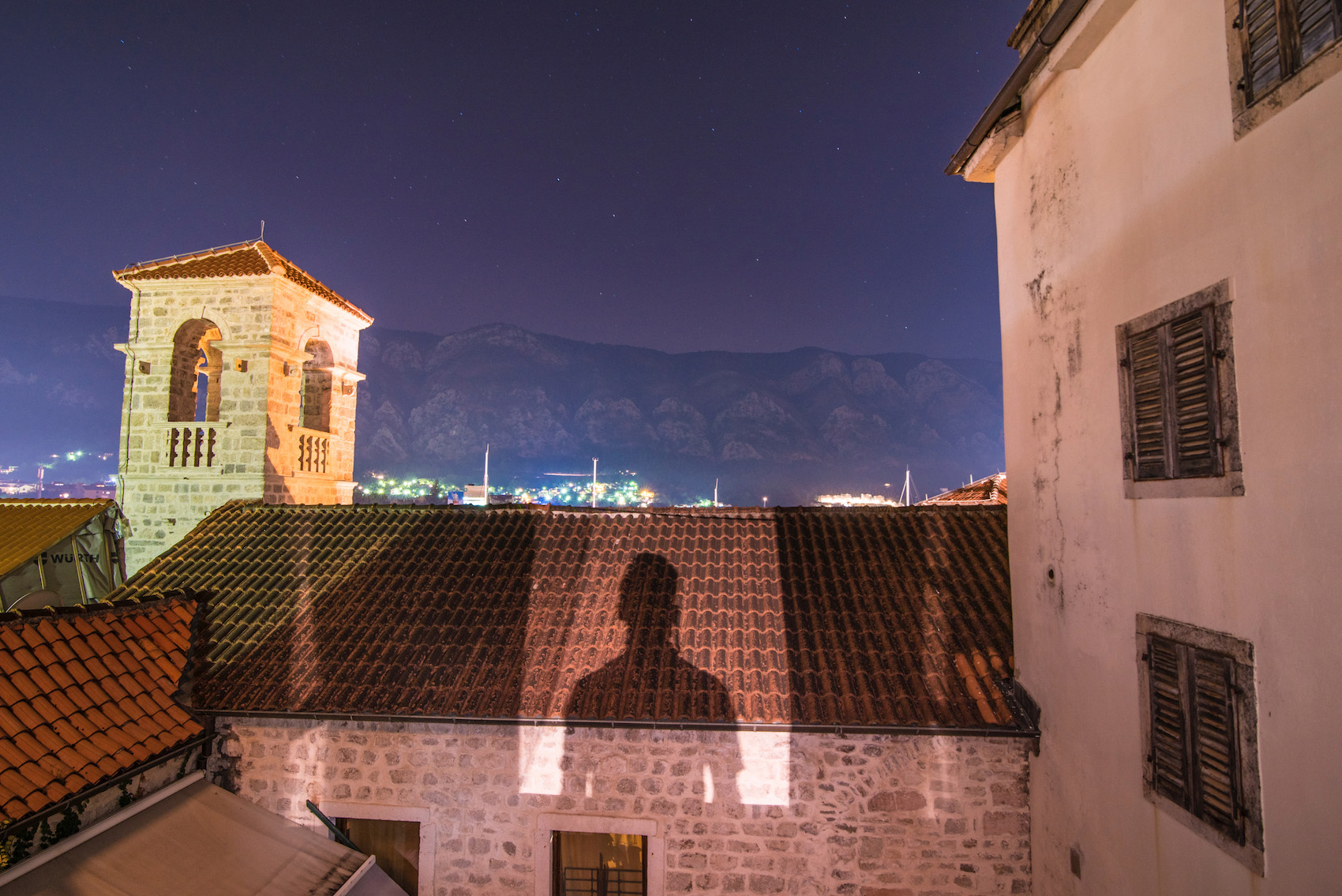
I was huffing in and puffing out the humid air, in spite of what the woman had told me the night before. Climbing in the morning, she’d insisted, would be easy.
I occasionally caught glimpses above the fortress walls on either side of me, my head bobbing erratically with each heavy thud on every second step. But I mainly just saw sky and stone and the blue-violet flowers that grew out it horizontally. And the occasional old man selling bottles of water I didn’t stop to buy because I wanted to save face.
Get to the top, the voice inside me scolded. You can enjoy the view on the way down.
Every 50 steps or so, usually around the time I’d turn a landing and head in a different direction, logical, linear thoughts like these would fill my head. The rest of the time, however, my consciousness was as tangled as the brush that covered the mountainside I was scaling.
Her apartment—the “morning climbs are easy” woman—was named for her grandmother Pela, whose ghost apparently still lives there, based on the old-lady decor. Isn’t it funny how taking two steps out my door in Croatia made me feel like I was having a heart attack, yet here I just feel embarrassed by heavy breathing?What if Danilo was here right now? The battle that occurred in Kotor in 1814 was a big loss for France, but not the biggest: At Waterloo, Napoleon did surrender.
Just then, an older couple began approaching me as if I was the first person they’d seen in weeks.
“Would you mind taking our picture?” The woman asked in a British accent, her point-and-shoot hanging off her wrist like a piece of bait.
How could I ever refuse? I smiled and began snapping away.
My smile faded, however, when I noticed another couple approaching me, and then another after that. I could’ve taken this as flattery—the couples all assumed, because I carry a camera that looks much more expensive than it is, that I’m much more skilled than I am—but instead it just annoyed me.
It happens everywhere I go, and has since practically the day I started traveling. Usually I refuse to help out more than one or two couples, lest I lose the opportunity take my own damn pictures, but my exhaustion this day made me over-kind.
Now, I sighed and began descending, clouds having grayed the previously blue skies above Kotor Bay as I feared they would, it seems my only chance is giving up the fight.
For those of you who don’t know Kotor Bay, it’s also known as Boka and is a winding bay of the Adriatic Sea in southwestern Montenegro. The bay has been inhabited since antiquity. Yes, really.
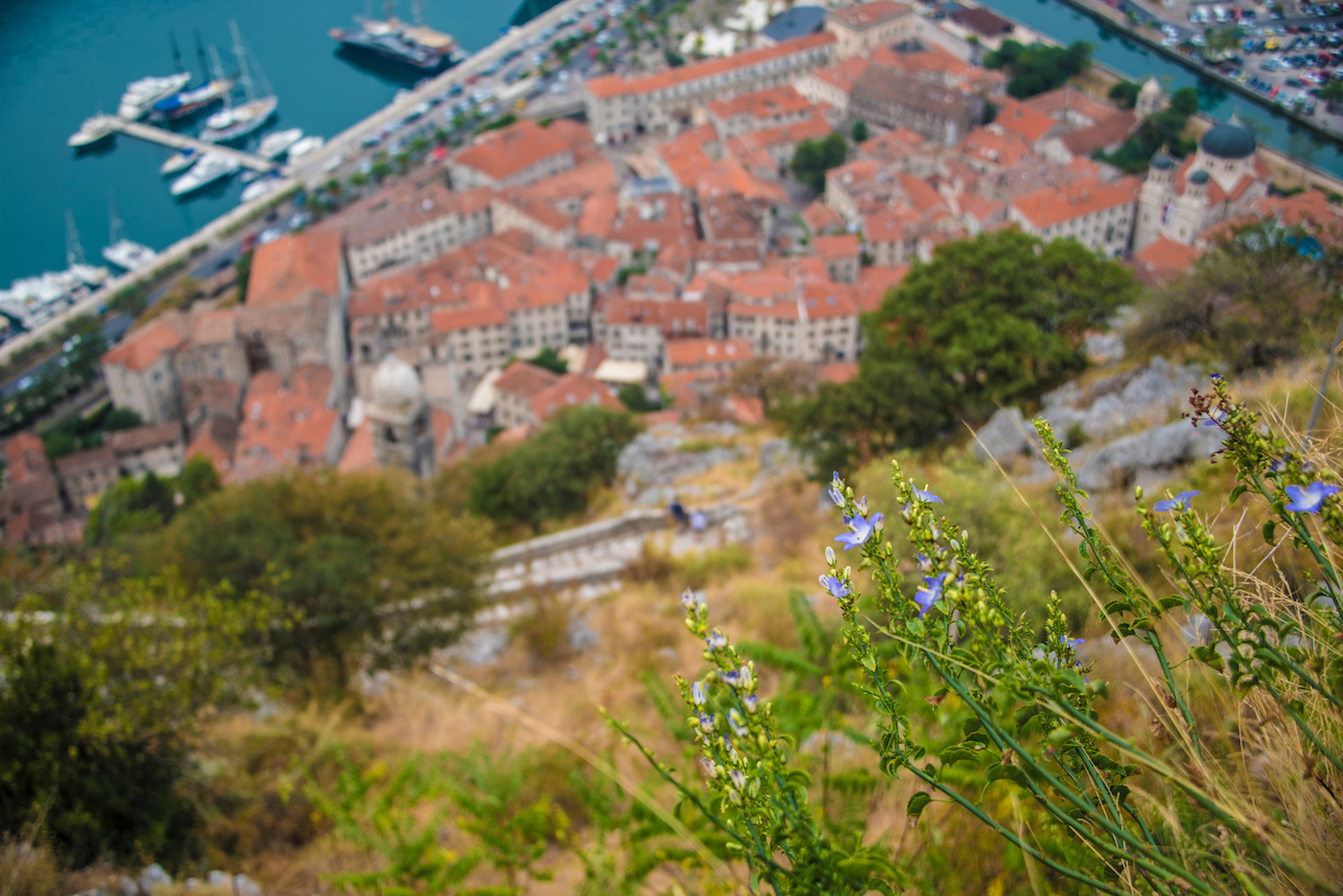
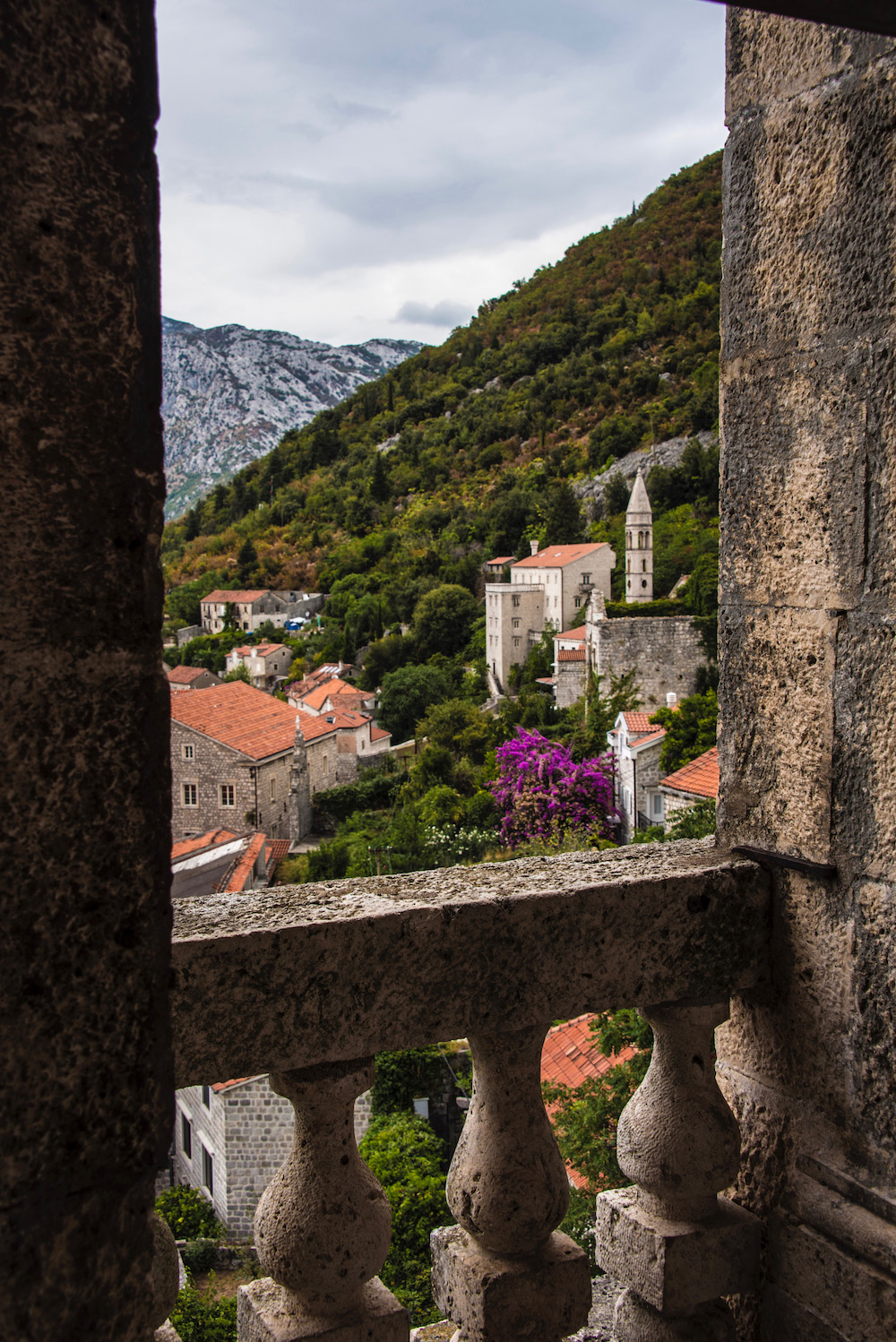
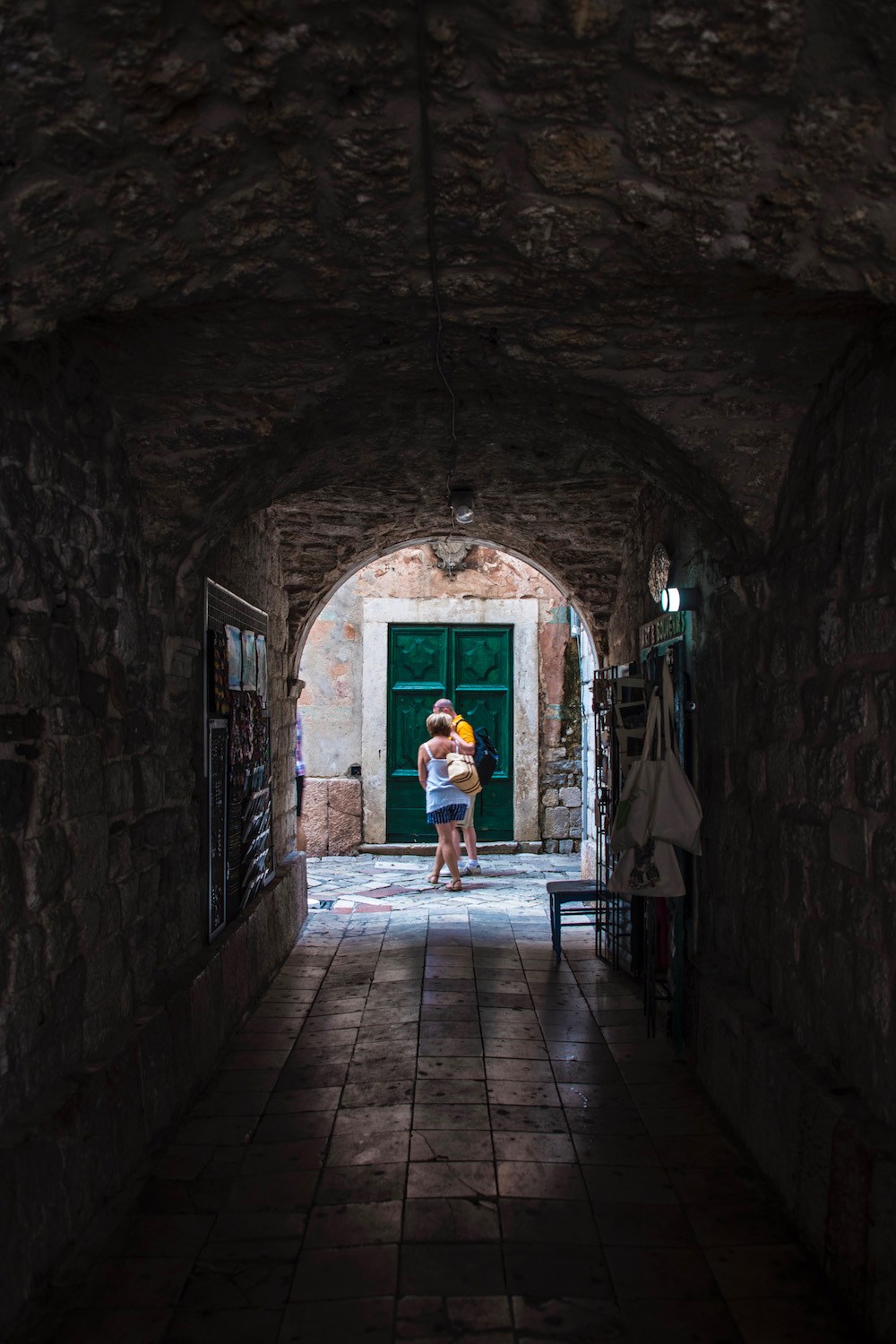
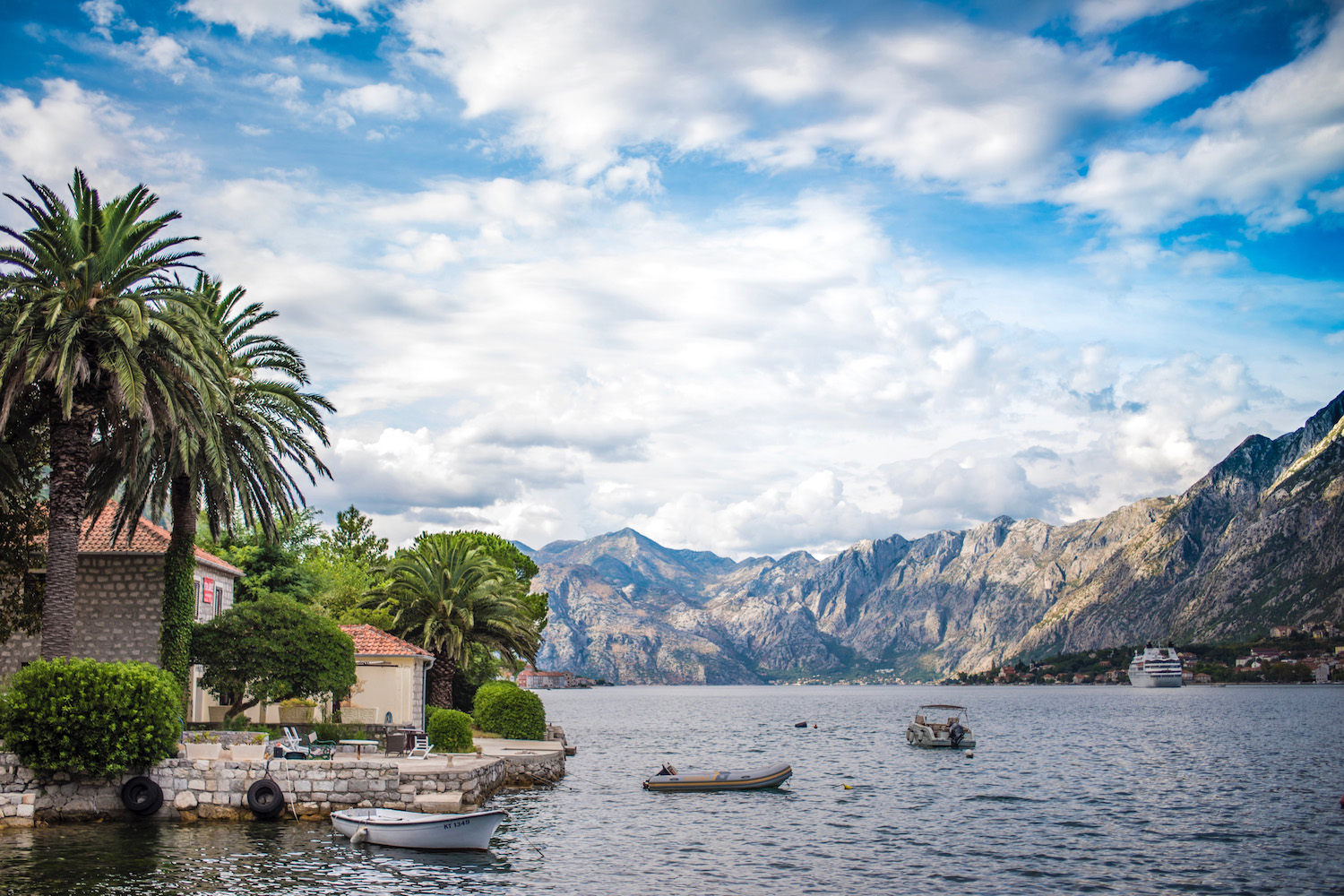
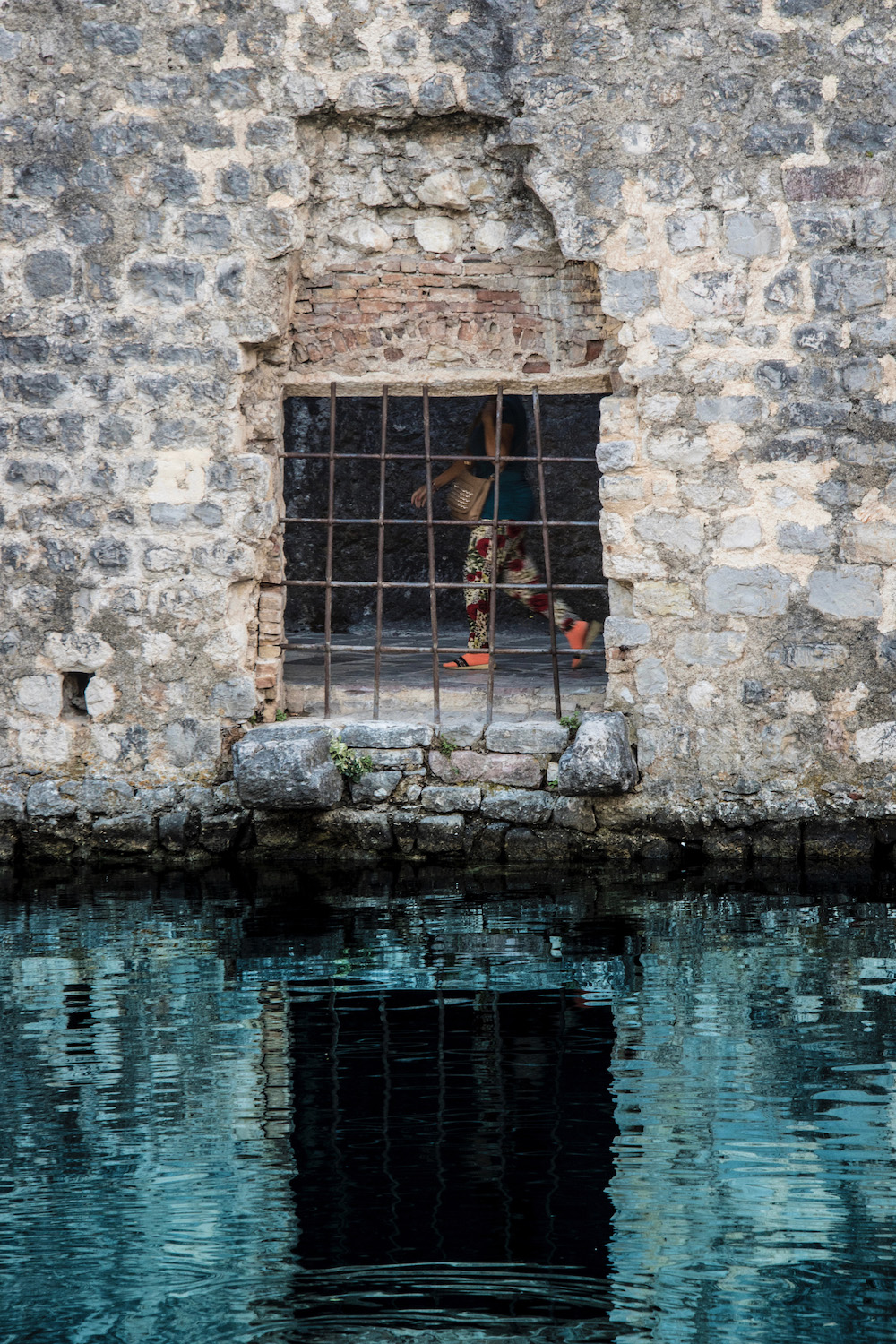
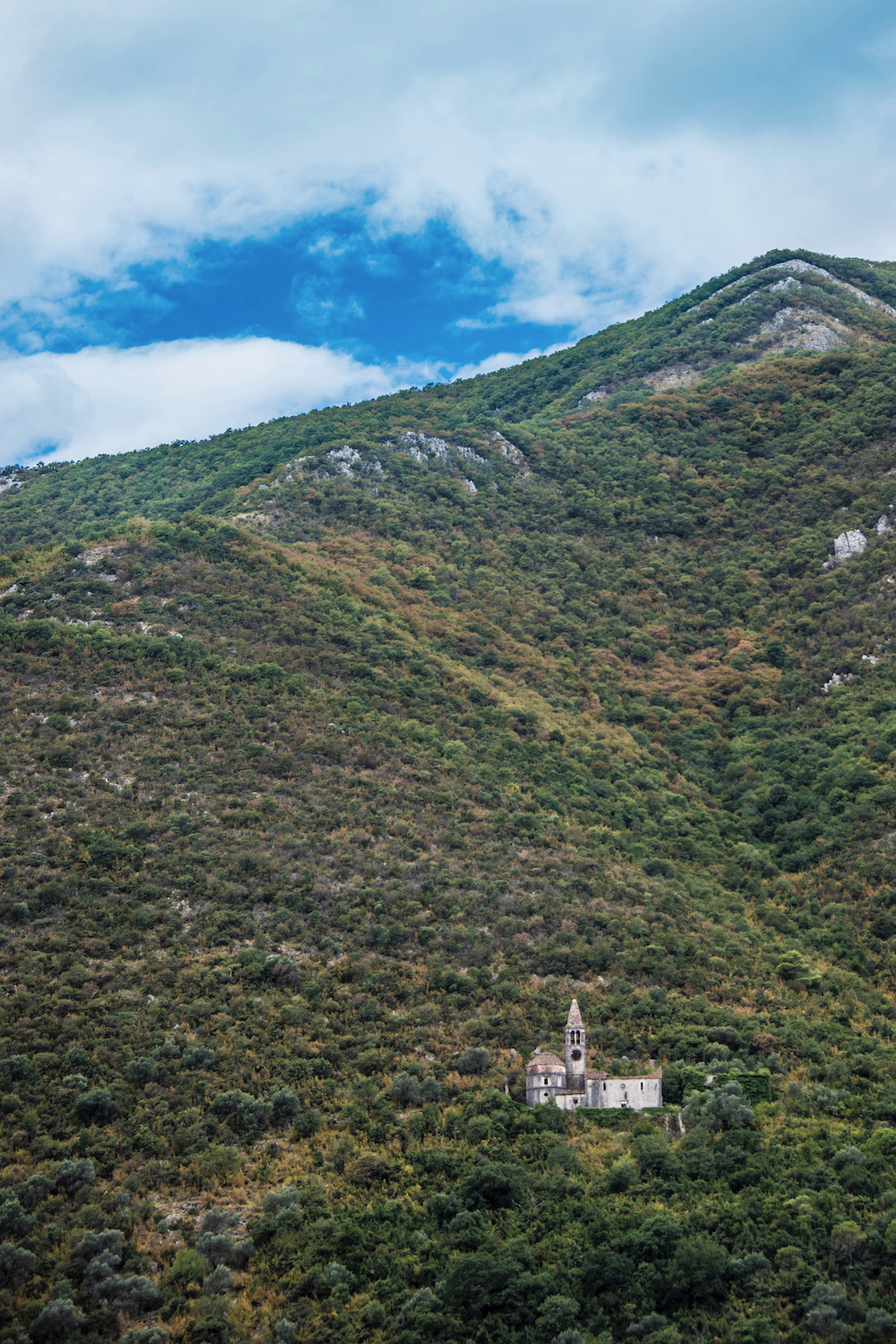
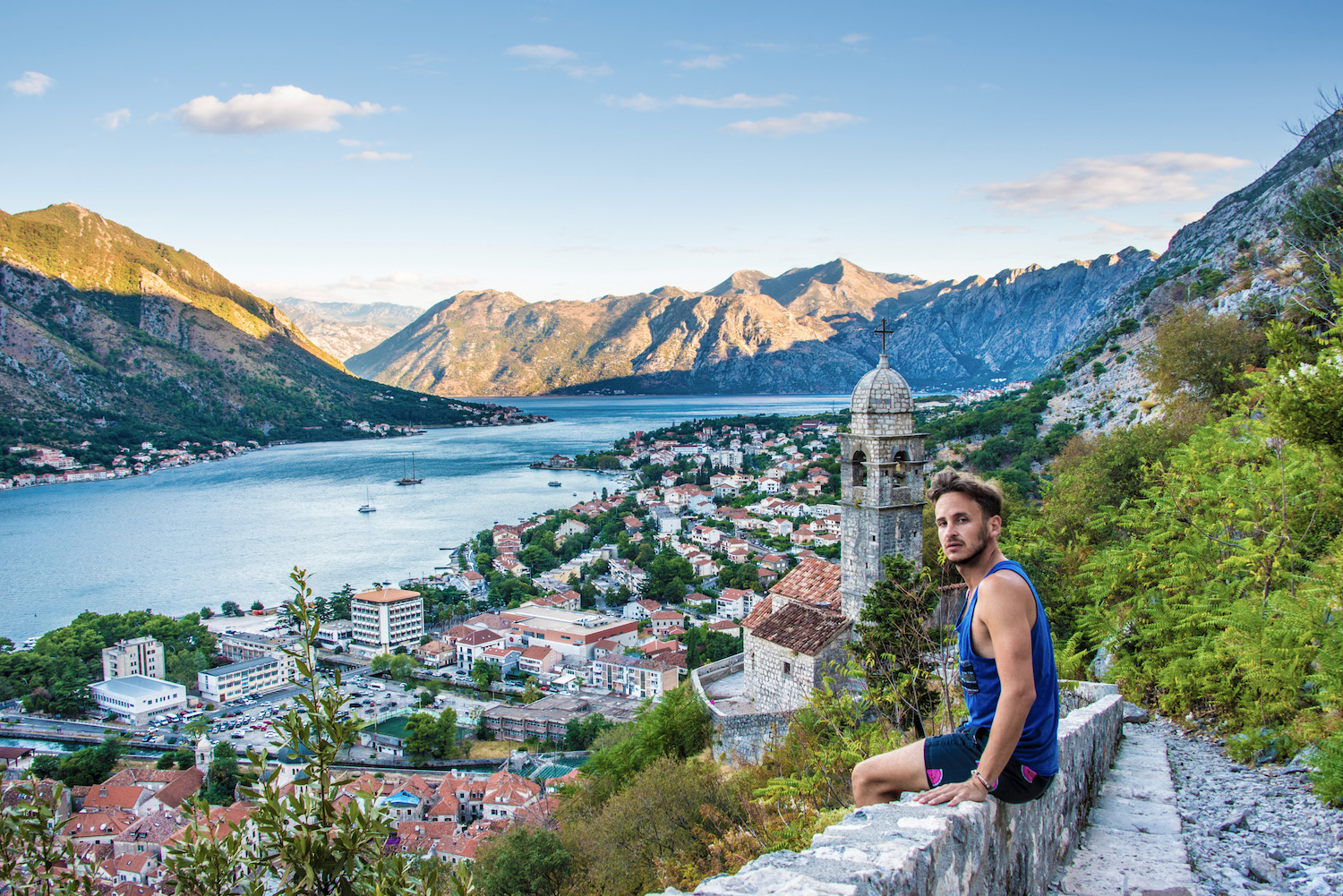
The good news is that when I headed upward the next morning, much earlier than I had the one before, it was very sunny. The better news is that I only saw other solo travelers at this time of day—the couples were obviously still in bed cuddling, or sleeping facing opposite directions and dreaming about partners superior to their own.
The bad news was that every time I started my self-timer and headed down toward the Church of Our Lady of Remedy such that my selfie would be perfectly composed, one of said solo travelers walked into the frame, always at a point in the frame that would make them Photoshopping them out impossible (or at least awkward).
The way they moved called to mind the previous day, trapped inside the city walls with obese Americans and Canadians who were on recess from the behemoth cruise ship docked just outside the Sea Gate. They squished their way through Kotor’s narrow streets like a blood clot, dragging against the artery walls but not clogging them, although they made me secretly wish the old city would explode like a heart starved of oxygen.
I considered for a moment, looking down on the city, that it might be an ideal day to rent a car and head south to Budva or Ulcijn, as I’d always planned to do one of my three days in Montenegro, a thought the rental car lot I spotted from my perch corroborated.
But noticing that the steps were finally devoid of other morning climbers, I catalogued that thought, activated my self-timer and got into position.
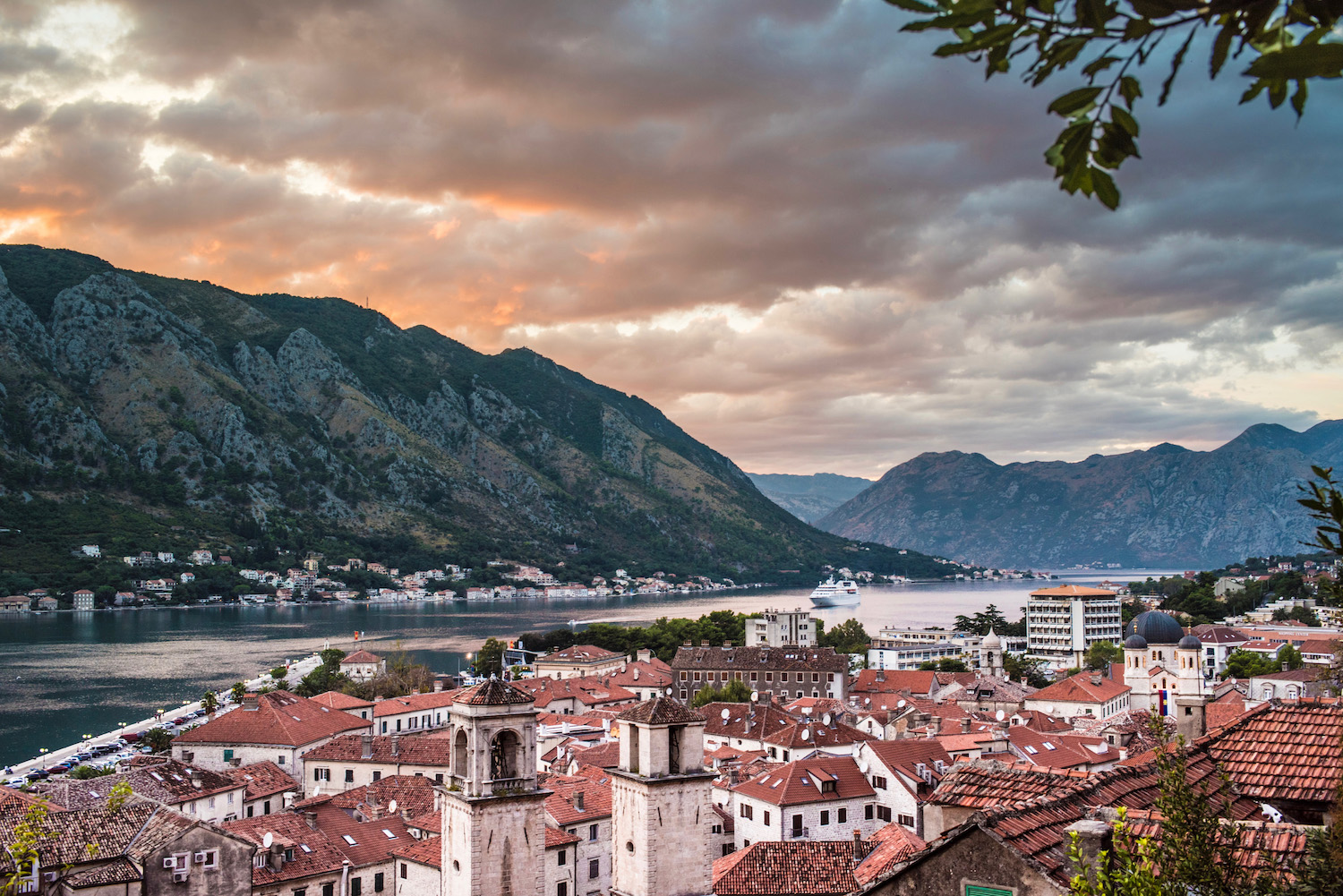
Literally seconds after I made peace with spending my third of three nights in Montenegro inside Pela’s apartment, fluorescent streaks the color of Kotor’s roof tiles began appearing on the clouds that had, up to that point, convinced me I wasn’t going to get a view of the bay with any color but gray or blue above it.
As I began racing up the walls, trying desperately to go faster than the last light of day was receding, I recalled how, when I came down from them the previous morning, the asshole behind the desk had told me, a wide smile on his face, that they didn’t have automatic cars.
Resigned to my reality, I’d stepped inside the Cathedral of St. Tryphon, where a group of American tourists not much older than I am were standing in front of some Jesus paraphernalia, speaking about the man as if they’d just had pizza with him outside.
I watched the pathetic scene mockingly, remembering how I’d been only 4 or 5 when I came to the realization that religion was a total sham. And that Jesus was probably not white.
And yet here I was two-and-a-half decades later, trying to use outside factors—my inability to rent a car, the unseasonably wet weather, a beautiful sunset—to justify the poor decision making—I gave up after visiting one agency, I had an umbrella and sunsets are a matter of chemistry, not karma—that had caused me to squander three days in Montenegro entirely inside the old city of Kotor.
It was disappointing, but not surprising—it was the same sort of Stockholm Syndrome that had inspired me to stay in my relationship well past its expiration date. I feel like I win when I lose.
Every time I had a legitimate reason to leave him or even question why I was still with him, I’d appeal to an external circumstance:The serendipity of my having been seated next to the Consul General of the U.S. Embassy in San Jose a day before Danilo was going to submit his in-vain visa application; A prescient fortune I’d received after dining with him at our local Pan-Asian restaurant; or some sunset that would color the sky right at the climax of a fight I thought would end it all for good.
I tried to hold you back, I watched the scenes playing in my head much more intently than the Church of Our Lady of Remedy in front of me or the mostly colorless sky above it. But you were stronger.
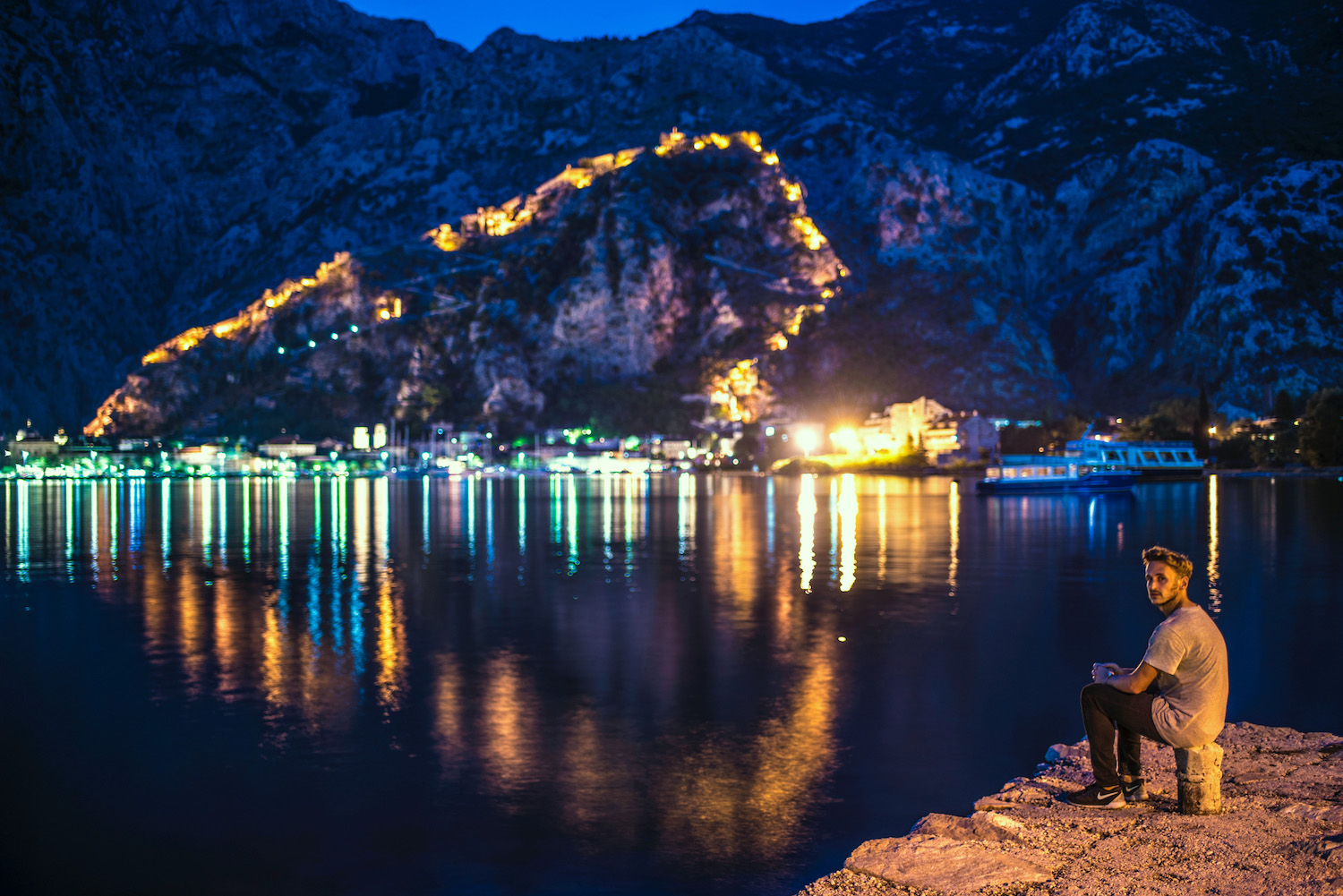
I briefly considered retreating to my old-lady apartment in defeat, but instead decided that now—the short time I had before the blue hour gave way to the black night—would be a good time to see what the walls that had trapped me looked like from a distance.
I walked first westward and then northward around the mouth of the bay until I was precisely across from the old city. To my naked eye, the answer wasn’t immediately clear, even if the vertical distance I’d climbed three times did look more impressive from over the water than it had from immediately below it.
It wasn’t until the long-exposure selfie appeared on my camera’s LCD screen, showing the reflections of the fort in the water, that I made my startling discovery.
I was defeated, I shook my head in astonishment, noticing that a nearly-perfect heart shape encased Kotor—and, by proxy, me. You won the war.

Robert Schrader is a travel writer and photographer who’s been roaming the world independently since 2005, writing for publications such as “CNNGo” and “Shanghaiist” along the way. His blog, Leave Your Daily Hell, provides a mix of travel advice, destination guides and personal essays covering the more esoteric aspects of life as a traveler.








